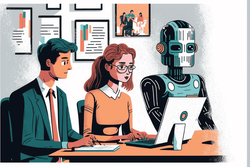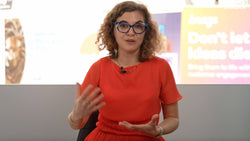World Economic Forum Davos 2024- Sam Altman
Share with Friends

This panel discussion at the World Economic Forum features OpenAI CEO Sam Altman, along with other technology leaders and a politician, discussing the implications of artificial intelligence. The conversation centers around the potential benefits and risks of AI, the importance of trust and responsible development, the impact on productivity and various industries (including healthcare and finance), and the need for global cooperation in regulating AI. Concerns about AI’s potential misuse and the need for ethical guidelines are also highlighted. The discussion also touches upon a recent lawsuit against OpenAI and the need for new economic models to compensate creators whose work is used in AI training data.
Highlights
-
🗣️ The Future of Work: The panelists discussed how AI will augment human capabilities rather than replace humans entirely, leading to increased productivity and shifting job roles towards higher levels of abstraction and curation.
-
🤔 Trust and Transparency: A central theme is the need for trust in AI systems. This involves creating more transparent models, allowing AI to explain its reasoning, and establishing safety standards to mitigate risks.
-
🤝 Global Collaboration: The importance of international cooperation in regulating AI to prevent misuse and ensure ethical development was emphasized. The need to avoid an AI arms race was also discussed.
-
⚖️ Regulation and Responsibility: The panelists debated the appropriate level of AI regulation, advocating for a balanced approach that fosters innovation while mitigating potential harms.
-
💰 Economic Models and Data Usage: The discussion addressed the ethical and legal implications of using copyrighted material in AI training data, highlighting the need for new economic models that fairly compensate creators.



























